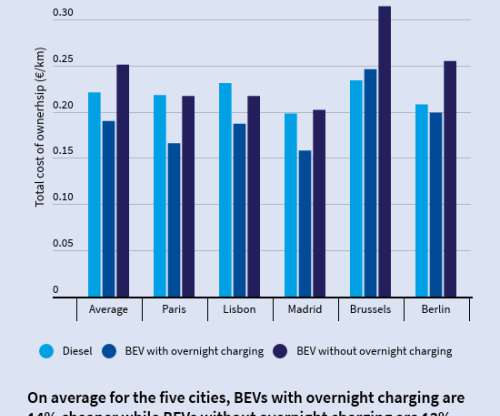T&E study: EVs can be cheaper for Uber drivers to run than latest diesels in many European capitals
Green Car Congress
JUNE 18, 2020
If Uber wants to lead the change and be part of the solution for our cities, then the company should commit to 100% electric rides by 2025 in key European capitals. In Paris, the fleet of ride-hailing drivers tripled in the past four year, from around 10,000 in 2016 to about 30,000 today.












Let's personalize your content